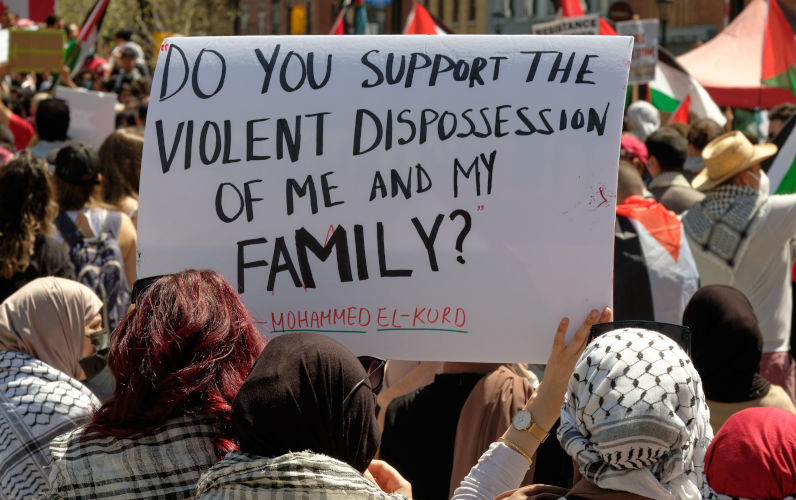Review: Perfect Victims
June 13, 2025
Mohammed El-Kurd is a poet, writer, journalist and organiser from Jerusalem in occupied Palestine.
Named by TIME magazine in 2021 as among the world’s most influential people, he is regarded as one of the most dangerous by Israel. When he gave a lecture at Princeton University, the room was surrounded by and full of cops, and Zionists protested even before the lecture began.
Mohammed does not shun controversy, but recognises the need to confront the causes and the perpetrators of Palestinian dispossession, oppression and genocide. He goes beyond the mere iteration and listing of Zionist crimes against humanity whether by the Israel Defence Force or by West Bank settlers. He investigate the processes by which demonisation, dehumanisation and cultural destruction have been made acceptable in the west. He is conscious of negative processes and his subtle analysis exposes their sinister intent and effects.
Writing in a time of genocide seems “shamefully insufficient” while bombs are falling. What else can we do? For Mohammed, this book is an act of bravery. Our responsibility is to raise the ceiling of what is permissible. In this respect even we writing in safety in Australia might help.
Mohammed wants to break out of the “hamster wheel” that is the arrogant, autocratic global by injecting the local and personal. It is better to be a history maker than an object of history. The “politics of appeal” has been forced onto Palestinians who find themselves acting and arguing in terms legitimised by the very institutions and situations they aim to abolish. The system decides which individuals and which narratives are acceptable. By following these rules and using the “master’s tools”, activists reproduce the very institutions they want to subvert.
Mohammed addresses the reader not as judge, but as “a curious stranger or better yet a familiar visitor (to his sitting room) without fear, jargon or pretences”. He uses linguistic and grammatical devices such as first, second and third person, noting that Palestinians have been subject to “colonial fragmentation”. He consciously uses masculine gender throughout to expose and resist the way in which Palestinians have been reduced to women and children.
Each chapter answers challenges. In the media “We die a lot” and yet the hands of the sniper are free of blood. In escaping the category of terrorist, Palestinians become the perfect victims. The oppressors start the narrative from what came second – the violence of resistance is positioned as the cause of all the trouble. Obituaries that “defang” Palestinians “sew angels’ wings” onto their backs. Only then can they be safely mourned by respectable people.
The idea of the civilian as non-partisan is one convenient myth. The apparent American passport of the murdered journalist Shireen Abu Akleh supposedly made her death seem more tragic than if she had been just another Arab. By distancing her from Palestinians, some commentators expected more accountability to follow. Mohammed notes however that status as American did not bring justice to the slain Rachel Corrie.
Palestinian children have been instructed to differentiate between Jewish and Zionist with “surgical precision” although Jewish “boots were on our necks”. Their statelessness and oppression were trivialised. What was serious was how Palestinians spoke about them. Say the wrong thing and the “bullets, batons and bruises” disappear from the narrative. Palestinians learn early to muzzle their language. It sounds all too familiar in an Australian context.
Mohammed says he is tired of the equivalence between “semantic violence and systemic violence”. There are better things to do than to debate language – “we have coffins to carry”. Why, he asks, must we meet absurdity with serious discussion? He quotes Golda Meir expressing regret that Palestinians forced Israel to kill their children. He describes the same old playbook – initially deny, then it was a mistake, then a targeted attack, then a mistake.
Mohammed notes the compromises made by Palestinian journalists. They think initially that they can do some good working within media organisations. He notes the “dissonance, a discrediting dissonance in indulging institutions we accuse of bias and complicity”. The “mainstream embrace” pays the rent.
This a powerful book which exposes the lies in the discussion of Palestinian victimhood. It is a fearless book because the author knows that those who control the global narrative will continue to apply their techniques to his writing. Yet, this is also an optimistic book. In the face of the massacres, genocide and repression, resistance continues. Mohammed El-Kurd argues that “liberation is attainable, the future is within reach”. All humanity needs him to be correct.
Perfect Victims and the Politics of Appeal Mohammed El-Kurd (Haymarket Books Chicago 2025, 245 pp. Paperback)
The views expressed in this article may or may not reflect those of Pearls and Irritations.


